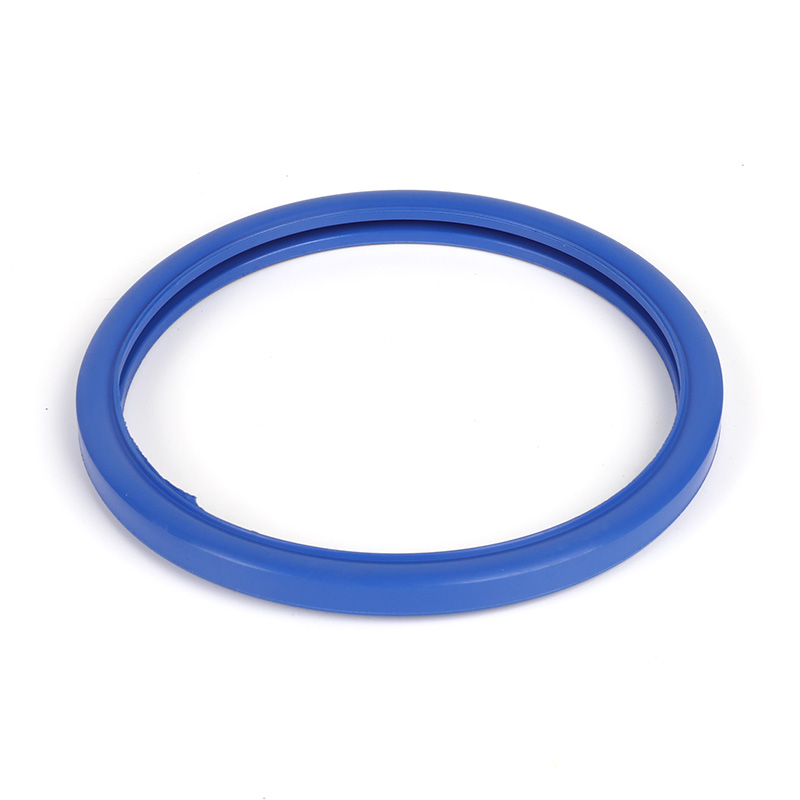+86-576-88024290
Search
13 06, 2025
Industry Updates
When examining critical engine components, Automobile Oil Filter Seals play an essential role in maintaining performance and preventing leaks. These seals face harsh environments: they must withstand engine oil, fluctuating pressures, and temperatures that can exceed 150 °C. The materials used—typically fluorocarbon (FKM/Viton®) and nitrile rubber (NBR)—were selected for their ability to resist heat, oil degradation, and aging. This article explores why the choice of material in Automobile Oil Filter Seals is crucial for reliable engine operation.
Which Rubber Material Offers Better High-Temperature Resistance?
One of the primary functions of Automobile Oil Filter Seals is to maintain a tight seal under thermal stress. Standard NBR-based seals typically perform well up to approximately 110 °C, with short-term tolerances reaching 130 °C. This range covers conventional driving conditions.
In contrast, Automobile Oil Filter Seals made with FKM (also known as Viton®) are rated for continuous use up to 200–205 °C, with the ability to endure even higher temperatures intermittently. This makes FKM ideal for use in high-performance or heavy-duty engines, where oil temperatures can exceed typical OEM specifications.
Oil Compatibility and Aging Resistance
Another key factor is how well the material resists degradation from engine oil. Automobile Oil Filter Seals must stay sealed even when exposed to hot engine oils over long service intervals. FKM resists various petroleum oils, synthetic lubricants, and chemicals without substantial swelling or hardening. This chemical resistance helps Automobile Oil Filter Seals maintain flexibility and sealing integrity during extended use.
Conversely, while Automobile Oil Filter Seals made from NBR also handle conventional engine oils well, they are less stable when exposed to high oil temperatures or aggressive additives. NBR seals tend to harden faster than FKM under elevated heat, potentially compromising their sealing performance.
What About Durability?
The longevity of Automobile Oil Filter Seals depends on both the material and operating conditions. FKM seals, thanks to their molecular structure and stable resistance to oxidation, ozone, and temperatures, typically last longer before degradation becomes evident. Engine manufacturers and seal suppliers recommend FKM seals for heavy-duty applications where daily operating temperatures approach upper thermal limits.
NBR-based Automobile Oil Filter Seals, however, are a cost-effective option for standard vehicles. They still deliver strong resistance to oil and are resilient in moderate-temperature environments. Proper service intervals and high-quality oil help these seals perform effectively over their expected lifespan.
Selecting the Right Seal for the Job
Choosing between NBR and FKM for Automobile Oil Filter Seals depends heavily on engine performance, temperature conditions, and operational environment:
FKM seals are the premium choice for high-performance engines, racing applications, heavy-duty trucks, and environments with heavy oil additives. Their heat and chemical resistance make them reliable in demanding conditions.
NBR seals meet the needs of everyday passenger cars and normal driving conditions where temperatures seldom exceed 120 °C. When cost and reliable performance are important, NBR is often the material of choice.

Operational Cost Considerations
Although Automobile Oil Filter Seals made from FKM typically cost more than those made from NBR, their enhanced durability and longer service life can reduce overall maintenance costs. Fewer filter housing replacements and less frequent seal failures contribute to increased reliability and lower long-term operational expenses for vehicle owners.
Ensuring Optimal Engine Protection
Properly designed Automobile Oil Filter Seals made of FKM or NBR must also be checked for fit and installation integrity. Even the material cannot compensate for incorrect sizing or poor assembly. Seal dimensions must match the housing precisely to avoid oil leaks or pressure loss. Good seal design and quality control ensure that Automobile Oil Filter Seals function correctly throughout the engine’s operating life.
Automobile Oil Filter Seals are a vital, though often overlooked, component in engine performance and protection. Their ability to resist high temperatures and prolonged exposure to oil depends on the choice of material:
FKM provides top-tier performance, withstanding temperatures above 200 °C and resisting oil degradation, making it ideal for demanding applications.
NBR serves well in conventional conditions, offering reliable sealing at a lower cost.
By understanding the benefits and limitations of each material, manufacturers and vehicle owners can make informed decisions when specifying Automobile Oil Filter Seals. Ultimately, the right seal material helps safeguard engine health, prevent leaks, and promote long-term reliability.